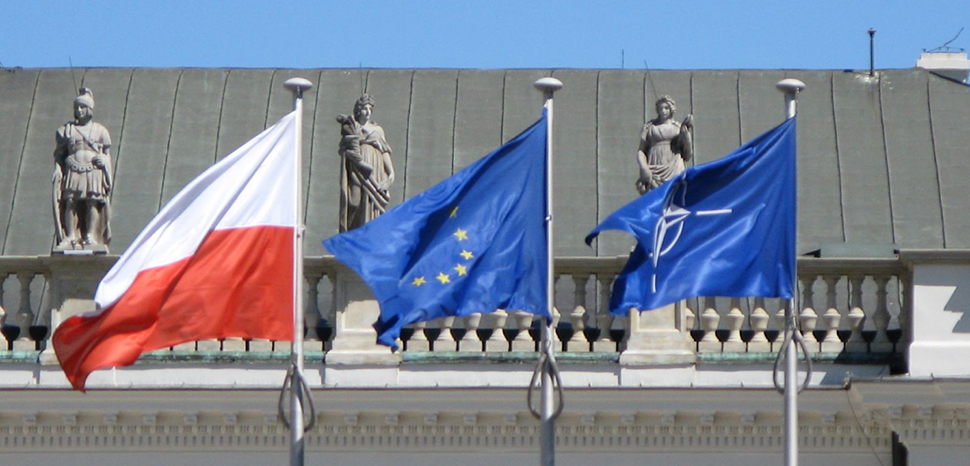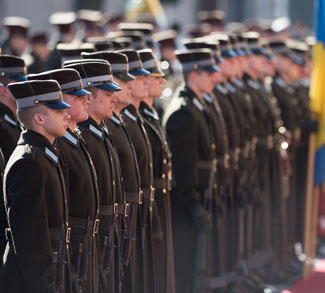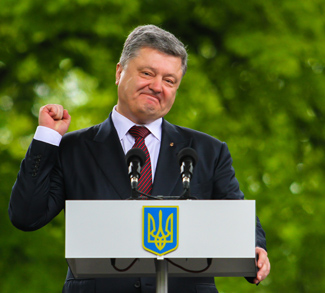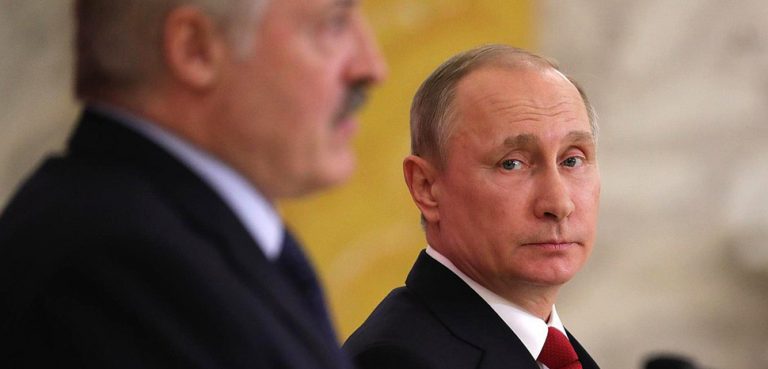After a brief reprieve amid the refugee crisis and the effects of the conflict in neighbouring Ukraine, Brussels and Warsaw are back on their standard collision course over Poland’s adherence to the rule of law. Law and Justice Party leader Jaroslaw Kaczynski has vowed that his party won’t take any further action to meet the rule of law demands set out by the European Commission to receive EUR 35 billion in grants from the EU’s pandemic relief program. According to Kacyznski, since the European Commission hasn’t fulfilled its obligations to Poland, Poland has no reason to fulfil its obligations to Brussels. Kaczynski also tapped into the powerful politics of grievance to stir the nationalist base of the party, warning of a ‘German-Russian plan to rule over Europe’, with Poland’s opposition eager to ‘enslave’ the nation by working ‘under foreign orders.’ This is deeply troubling language that presents Poland as a victim to larger geopolitical forces rather than as the driver of its own destiny and position in Europe. Submission to Germany is a common refrain, and Berlin a popular bogeyman for states that feel the EU has weakened their political power and the influence of their national courts and institutions. Kacynski’s words were echoed by Conservative leaders in the many years of Britain’s trying relationship with Brussels, as well as from Greek leaders during the country’s sovereign debt crisis.
As Prime Minister Morawiecki has echoed Kacyznski’s words in calling for Poland to battle imperialism coming from both the EU and Russia, both leaders risk turning Poland’s geostrategic position into a vulnerability. Poland under Law and Justice is firmly on the side of Ukraine and the current European security order, but ideologically it has antidemocratic tendencies that risk influencing its neighbours in harmful and unintended ways. The paradox is that Poland’s democratic development has come from its membership in European institutions and the form of modernised, collective imperialism that Brussels espouses. However, Warsaw is now able to influence the next wave of EU member states by simultaneously playing the victim to Brussels’ perceived imperial ambitions while also extending a hand to those escaping Moscow’s neo-imperialism under Putin. Unlike Viktor Orban’s Hungary, Poland is ultimately not a spoiler to the EU actively working to undermine Brussels’ response to Russian aggression. Poland is less reliant on Russian energy than Bulgaria, Hungary, Slovakia, and even Germany, and Polish leaders show no signs of kowtowing to Putin or of appeasing him in a bid to reach a negotiated settlement in Ukraine.
As Poland continues its antagonistic stance with Brussels, it is also standing as the borderland for the next wave of nations seeking to enter Europe. This includes Ukraine, as well as Georgia, Moldova, and several Balkan nations. As such, Poland’s neighbours are looking for role models. They are unlikely to find those role models in France when President Macron warns against humiliating Putin, or in Germany, given the continued reluctance of Chancellor Scholz to commit to Kyiv’s defence and to sign onto policy proposals initiated by the Baltic states and Poland. Instead, they will look to Poland and leaders like Estonian Prime Minister Kaja Kallas who are clear-eyed as to the threat from Putin and the need for Ukraine not to cede even one inch of territory should it whet Putin’s appetite for further aggression. For in Warsaw, Tallinn, Riga, and Vilnius, the history and traumas of Soviet occupation are never far beneath the surface. From their perspective, history is not a straitjacket that boxes nations in but a motivating force that can help crystallize the way forward and enlighten those who are yet to be persuaded. This is Poland and the Baltic states’ greatest gift to Europe, a contrasting version of history born of struggle but defined by unbridled optimism and realism as to what the future holds.
As an advanced democracy firmly rooted in Europe, contestations over the rule of law are now a luxury for Poland and a by-product of its own development. These debates may be framed as an existential or national struggle by Poland’s leaders, but it is existential by choice and for political ends. For the rule of law is a guidepost that is inherently vulnerable to politics in its quest to be blind and apolitical. It is one of the first things to wither as democratic backsliding begins, and one of the first things to establish when adherence to norms such as the Copenhagen Criteria are required for EU membership. As nationalists operating within a supranational union, the rule of law is a powerful political weapon that Polish leaders can latch onto to reclaim a sense of sovereignty against outside forces and perceived political enemies.
As war wages on Europe’s eastern periphery, Poland would be wise to recognise its privileged position. Unlike Ukraine, Poland’s war is a cold one resulting from ideological concerns in a bureaucracy of its own choosing. Warsaw has the capability to peacefully cease all hostilities and focus its efforts on instilling the rule of law in its close neighbour that is fighting for a piece of its prosperity. Poland has a responsibility both to Ukraine and to Europe, with adherence to the rule of law serving as a sacrosanct pillar in Warsaw’s relations with both. For Ukraine, Poland’s quarrel may seem like a trivial matter at a time when populations have been forcibly displaced and major cities remain under threat from Russian missiles. However, it is essential that Warsaw honour its commitments to Brussels so that it can continue to guide the coming hours in Europe and the coming member states who have truly borne witness to an imperialism that has shattered their sovereignty.
The views expressed in this article belong to the authors alone and do not necessarily reflect those of Geopoliticalmonitor.com




